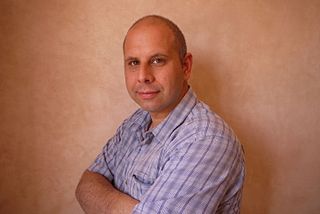A Quote by Malcolm X
After I made my tour in the Middle, into the Middle-East and Africa and visited Mecca and other places, I think that the separation [ from the Black Muslim movement] became psychological as well as physical, so that I could look at it more objectively and - and separate that which was good from that which was bad.
Related Quotes
First I might say that when a person, when a man separates from his wife, at the out start it's a physical separation but it's not a psychological separation. He still thinks of her in, in probably warm terms. And, but after the physical separation has taken, existed for a period of time, it becomes a psychological separation as well as physical. And he can then look at her more objectively. My split or separation from the Black Muslim movement at first was only a physical separation, but my heart was still there and it was impossible for me to, for me to look at it objectively.
There's kind of a hidden point which isn't being brought out, and that is that it is inconceivable that the U.S. would permit democracy in the Middle East, and for a very simple reason. Just take a look at polls of Arab public opinion. They exist. You can't find them in the press, but they exist from prestigious polling agencies. Released by major institutions. And what they show is that if there was democracy in the Middle East, the entire U.S. program for domination of the Middle East would be down the tube.
I think the public is very reluctant to get involved in more foreign wars, especially in the Middle East. And they understand, implicitly, that we go to war in the Middle East because of oil. And if we don't want to go to war in the Middle East, then we have to do something about the oil problem. And I think that view is gaining ground in the U.S.
Actually we've had a black bourgeoisie or the makings of a black bourgeoisie for many more decades.In a sense the quest for the emancipation of black people in the US has always been a quest for economic liberation which means to a certain extent that the rise of black middle class would be inevitable. What I think is different today is the lack of political connection between the black middle class and the increasing numbers of black people who are more impoverished than ever before.
I think that we don't have, here in the Middle East or in Africa, as much threat to our physical and economic livelihood as women in other parts of the world. But the continuum is the same. The pressures on women to fit into a certain image of a good Muslim girl is the same. The controls and rules are the same, but there are different degrees of it. So, in America, a father will threaten a daughter that he will disown her if she marries the American boyfriend and in Pakistan she faces acid thrown on her face. The power dynamic is the same, it just expresses itself differently.




































